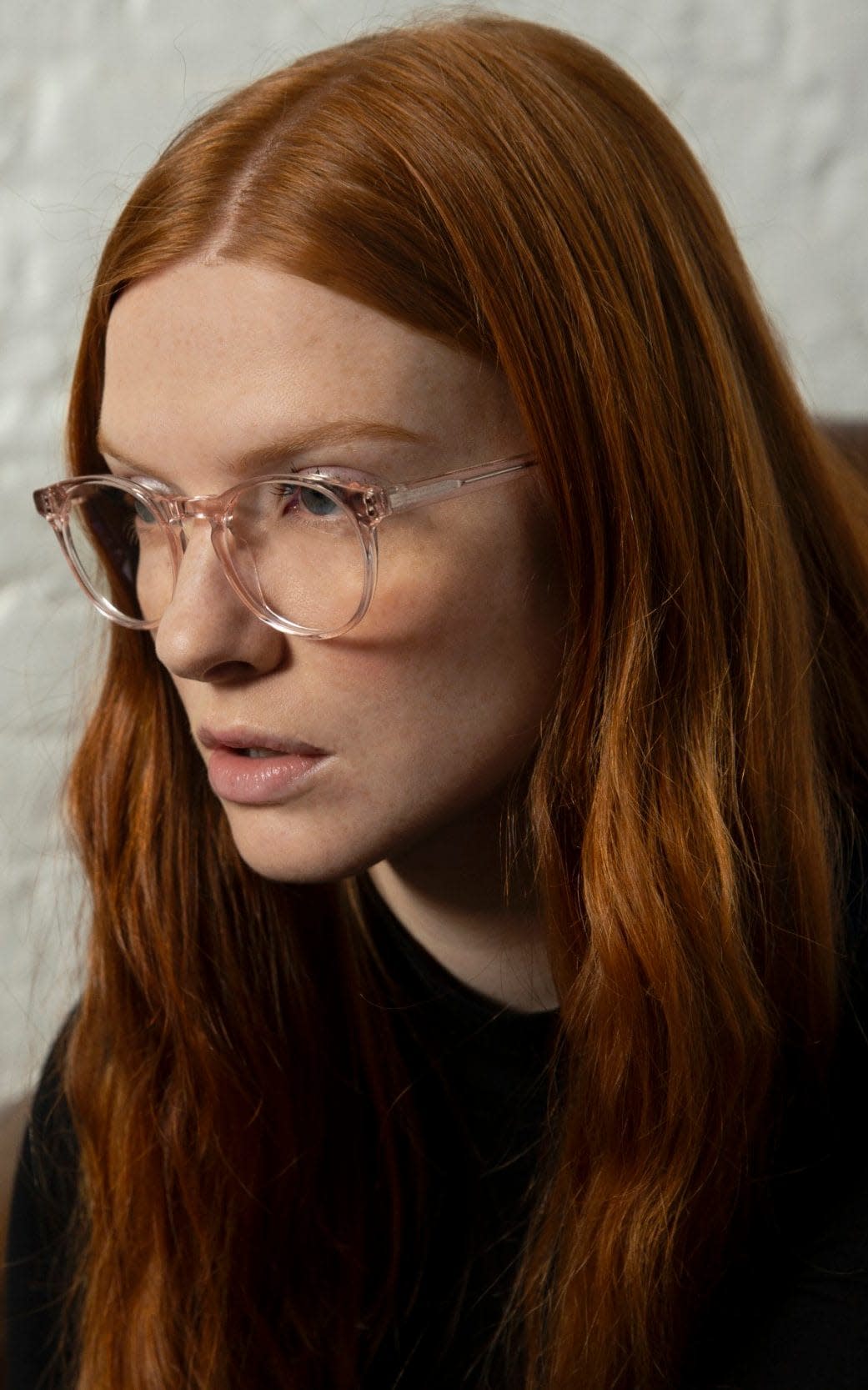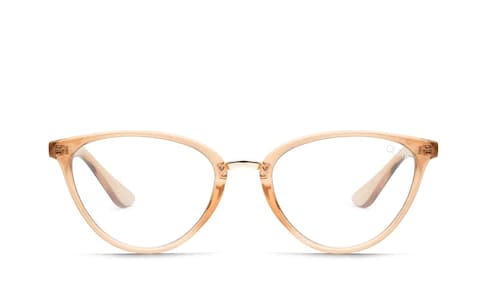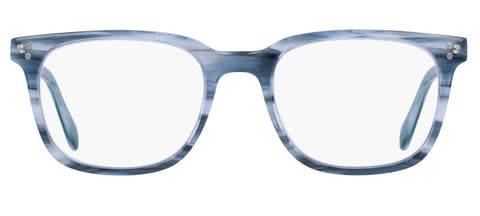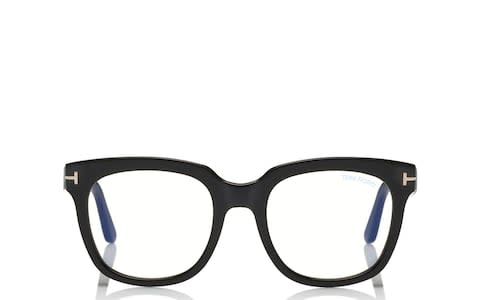The stylish glasses offering a chic solution to screen fatigue

If by the end of the day your eyes feel dry and scratchy, and you’re having trouble nodding off, then you could be in need of some sci-fi sounding, but thankfully not looking, blue-light blocking glasses.
Blue light, also known as high-energy visible light, naturally occurs in sunlight, but it appears in digital devices including smartphones, computer screens and even some LED televisions. Similar to UV light, long periods of exposure are increasingly becoming linked to a reduction in the body’s production of melatonin, the hormone that makes us sleepy, as well as damage to the eye tissue itself.
While it’s easy to say the solution is surely just to turn off such devices, when many jobs mean spending eight hours in front of a computer screen, not to mention commuting while simultaneously doing the online Ocado order followed by an evening plonked in front of Netflix, powering down isn’t so easy.
According to a report by Ofcom, the average person in the UK is now using screens for 24 hours a week, twice as long as 10 years ago, with one in five of all adults spending as much as 40 hours a week on the web.
No wonder, we’re all looking for a solution to combat that fried-eye feeling.
“Blue light blocking lenses are essentially an add-on to glasses. It’s a coating that is applied to the lens,” explains Mehreen Shaikh, an optometrist at Finlay London.

Tortoiseshell glasses, £45, Quay Australia
“As a concept it’s always been around but when Apple introduced the night mood function to iPhones, a lot more people became aware of the existence of blue light and as a result we’ve seen a lot more interest from customers.” The coating can be applied to prescription glasses but also to clear lenses, too. Unlike the night mode option on your phone it doesn’t add a sepia tone to your screen, meaning they don’t look any different. The only giveaway is a tiny purple hazy tone in the reflection if you have your picture taken while wearing them.
At Finlay London they can apply the coating to any of their 14 styles of glasses (from £100), and there are also a string of new brands dedicated to ready-to-wear blue light blocking glasses. “About 90 per cent of our sales are for non-prescription lenses, meaning people with perfect eyesight are looking to protect themselves from their screens,” explains Dan Nugent, co-founder of Ambr Eyewear, an online site dedicated to blue light blocking glasses.
Previously working in the tech industry, the idea came about when trying to source glasses to combat eye pain from long hours spent in front of a computer resulted in Nugent only being able to find ugly goggle-like glasses with deep orange lenses. He couldn’t believe there wasn’t a more stylish, yet affordable, option. In 2017 he set up the brand, which now carries a range of six styles, which look just like regular optical glasses, starting from £45.

Asteri glasses in stone grey, £49, Ambr Eyewear
“Within 18 months, we have achieved online sales in over 60 countries worldwide and expect to achieve revenue of £750,000 in only our second year. We’re also launching in-store at Selfridges soon,” he says.
Elsewhere, MOSCOT has a “Digital Relief” clip-on lens (£115) that the brand’s CEO, Dr Harvey Moscot, explains “help to eliminate glare and provide a better experience for anyone viewing a digital screen”. They can easily be snapped on and off to existing glasses when needed.

Block large opticals, £240, Tom Ford
For the high fashion eye, see also Tom Ford, which last year introduced a range of 10 blue light blocking styles starting from £240. On the cheaper end of the scale, The Telegraph’s Krissy Turner has been wearing a tortoiseshell version from Quay Australia for £38 for the past six months. “I suffer from regular terrible migraines, and was advised by my optician whilst I don’t need prescription lenses it could be worth investing in a filtered pair of glasses. I haven’t taken them off since or had a migraine.”
Donning a pair sounds much easier than a digital detox.

